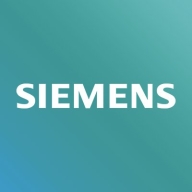

IBM Engineering Workflow Management and Polarion ALM are competing products in application lifecycle management. IBM often prevails in terms of pricing and support, while Polarion stands out for its advanced features, making it a worthwhile investment for many seeking comprehensive ALM capabilities.
Features: IBM Engineering Workflow Management is valued for its comprehensive task and project tracking, effective integration with other IBM tools, and robust change management functionalities. Polarion ALM offers extensive test management, customization options, and strong traceability features ensuring rigorous compliance, appealing to those needing versatile and powerful functionalities.
Room for Improvement: IBM Engineering Workflow Management could enhance its feature customization and improve its user interface for beginners. Additionally, providing more extensive documentation would help streamline onboarding. Polarion ALM could improve its out-of-the-box functionality and simplify its complex interface to be more user-friendly. Enhancing the extraction of quality data from management reports is another area for improvement.
Ease of Deployment and Customer Service: IBM Engineering Workflow Management is recognized for its straightforward deployment and strong customer support, facilitating seamless integration into existing systems. Polarion ALM's deployment can be complex due to customization options but is supported by a responsive customer service team, offering flexibility with added complexity.
Pricing and ROI: IBM Engineering Workflow Management offers a competitive initial setup cost with a promising ROI, especially for those leveraging IBM's ecosystem. Polarion ALM, although higher in upfront costs, provides compelling ROI for organizations seeking extensive ALM features that justify the investment. The choice often hinges on whether the advanced capabilities of Polarion ALM outweigh its initial costs.


IBM Engineering Workflow Management manages plans, tasks, the project status and acts as the critical link between required and delivered work. It provides flexibility to adapt to any process, which enables companies to adopt faster release cycles and manage dependencies across both small and complex development projects. This solution offers no-charge server software and flexible pricing models. It becomes a complete IBM Engineering Lifecycle Management solution—when purchased as a set of seamlessly integrated tools: IBM Engineering Workflow Management, IBM Engineering Test Management, and IBM Engineering Requirements Management DOORS Next.
The world’s first 100% browser-based ALM enterprise solution, which enables seamless collaboration across disparate teams, multi-directionally linked work items, full traceability, accelerated productivity and automated proof of compliance.
We monitor all Enterprise Agile Planning Tools reviews to prevent fraudulent reviews and keep review quality high. We do not post reviews by company employees or direct competitors. We validate each review for authenticity via cross-reference with LinkedIn, and personal follow-up with the reviewer when necessary.